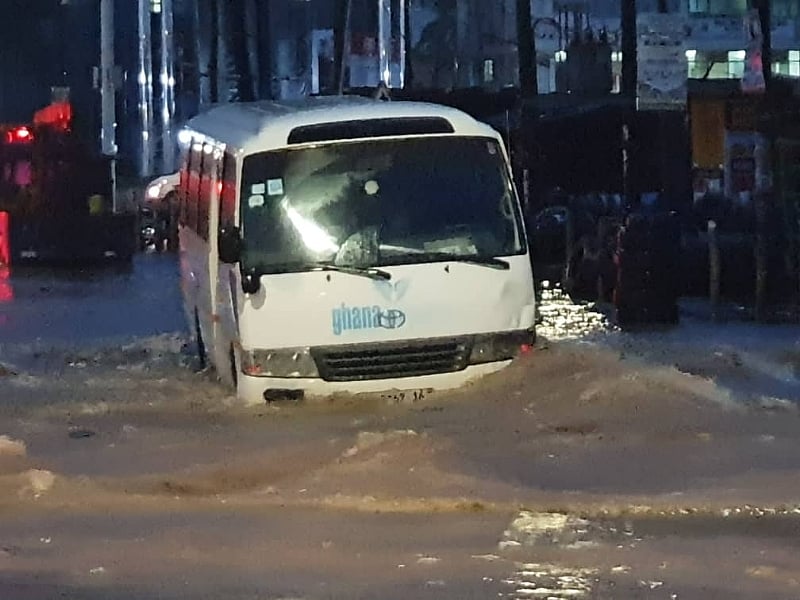Every year, the rains return—and so do the floods in Accra. Roads become rivers, homes are submerged, lives are lost, and the cycle of shock, blame, and short-lived responses repeats. The knee-jerk explanation? Climate change. It’s convenient, even partly accurate. Yes, climate change is intensifying rainfall unpredictability and increasing the ferocity of winds and storms. But to blame climate change alone is to miss the point. Accra’s floods are less about global warming and climate change and more about political ecology—how power, planning, and privilege shape who suffers and why.
Let’s be honest: we have known for decades that Accra sits in a low-lying coastal basin. We have known where the waterways are. We have known that rains will come. What we’ve failed to do is enforce existing land use plans, uphold environmental laws, and resist the powerful interests who build and live with impunity in waterways and wetlands. In a city where urban planning decisions are routinely undermined by political interference, floods are not a natural disaster—they are a political one.
A closer look reveals the deep structural causes of Accra’s flooding. Drains are choked not because of sudden cloudbursts, but because solid waste is mismanaged, because construction permits are issued in ecologically sensitive areas, and because those with political and economic capital often receive preferential treatment when caught violating zoning regulations. Bulldozers are quick to demolish the kiosks of the poor, but eerily silent when luxury estates encroach on floodplains. This is not just bad governance—it is selective governance.
Moreover, the enforcement agencies are systematically under-resourced. When developers know they can grease the system to override technical advice, what incentive remains to follow the rules? When city authorities are more accountable to political patrons than the public interest, flood-prone areas continue to be built up, paved over, and sacrificed at the altar of profit.
This is the political ecology of urban flooding: a complex interaction between weak institutional capacity, elite capture of public space, poor urban planning, and the uneven enforcement of laws. Climate change may be the backdrop, but the script is written by those who benefit from a dysfunctional system—and it is the urban poor who pay the price.
As Ghana invests over $200 million in the Greater Accra Resilient and Integrated Development (GARID) project and other interventions to improve flood risk and waste management in the Odaw River basin and enhance basic services in flood-prone low-income communities, we must confront the real issue. Accra’s flooding is not an act of God or merely a result of climate change. It is a failure of urban governance and political will. We must stop treating floods as climate anomalies and recognize them as symptoms of deeper structural and political dysfunction. Until then, we will continue to drown—not just in water, but in denial. We need to reframe the conversation around floods in Accra—not as a climate anomaly, but as a symptom of deeper social and political pathologies.
The solutions are clear and have been for a long time: enforce zoning laws consistently, protect waterways from encroachment irrespective of who the encroacher is, invest in proper drainage infrastructure, and empower planning institutions free from political interference. We also need to empower local communities in decision-making and address socio-political inequalities driving informal settlements. Sustainable flood solutions require confronting power dynamics, not just investing in infrastructure. These are not technical challenges—they are political choices. Until we tackle these, no amount of rainfall prediction models or climate resilience strategies will save Accra from its next inundation. Let’s stop treating floods like natural accidents. They are political outcomes—and we must demand political accountability.
By Dr Albert A. Arhin
The writer is a Development Planner, Sustainability Researcher and Research Fellow of the Bureau of Integrated Rural Development (BIRD), Kwame Nkrumah University of Science and Technology. Ghana. His email address is: [email protected]


